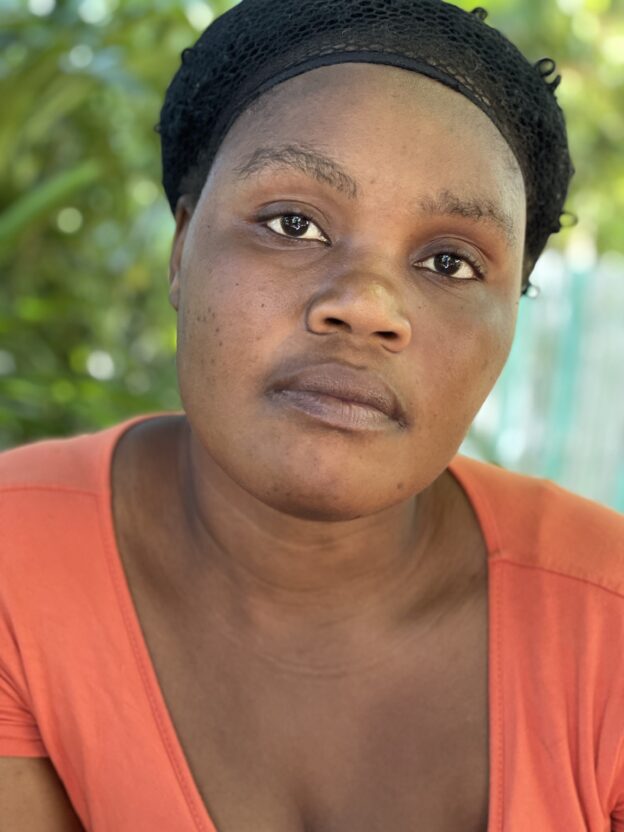We met Wideline in August. At the time, she had been part of the CLM program for about two months. (See here.)
She and her husband were living in a rented house in Hat, a neighborhood just east of downtown Laskawobas, though neither of them is really from the area. And not being from the area means that neither has family land where they would be able to build a new house. They installed a latrine with the program’s help, but they had to do it where they have been renting. Wideline hopes for a more permanent home, but she’ll need to buy a plot of land to build one.
In the meantime, she has been working at developing income. Before she was part of the program, she had been running a small grocery business by buying merchandise on credit. The unrelenting expenses of running her household eventually made things harder and harder to pay the wholesalers whom she owed. She and her partner had lost access to the land they hand been farming, so they were reduced to working in their neighbors’ fields.
When she was ready to receive the transfer that Fonkoze would provide for her to invest in business, she decided to return to small commerce. She bought groceries, but did it with her own money rather than on credit. “When it’s your own money, you buy what you want when you want. You don’t have to worry about paying it back right away.” She works at three different markets: Kwafè to the east, Mache Kana to the west, and downtown Laskawobas. The last of them is open two days a week, so she can sell on four days in all. It keeps her business moving, and she’s now got over 20,000 gourds invested.
When we first spoke to her, she had been excited about the chance to buy livestock, and so she also purchased two female goats with her investment fund. Both goats are now pregnant.
Wideline says that she doesn’t have a clear plan for them, but she knows what she wants. Her highest priority is to buy land, and the best route to buying land is to own a cow or two. So she hopes that the goats can enable her to buy one. She has been saving 500 gourds every week in her savings and loan association, and if she can keep it up, she’ll have at least 26,000 gourds at the end of the 52-week cycle. Between that money and the sale of a goat or two, buy a cow should not be a problem.
